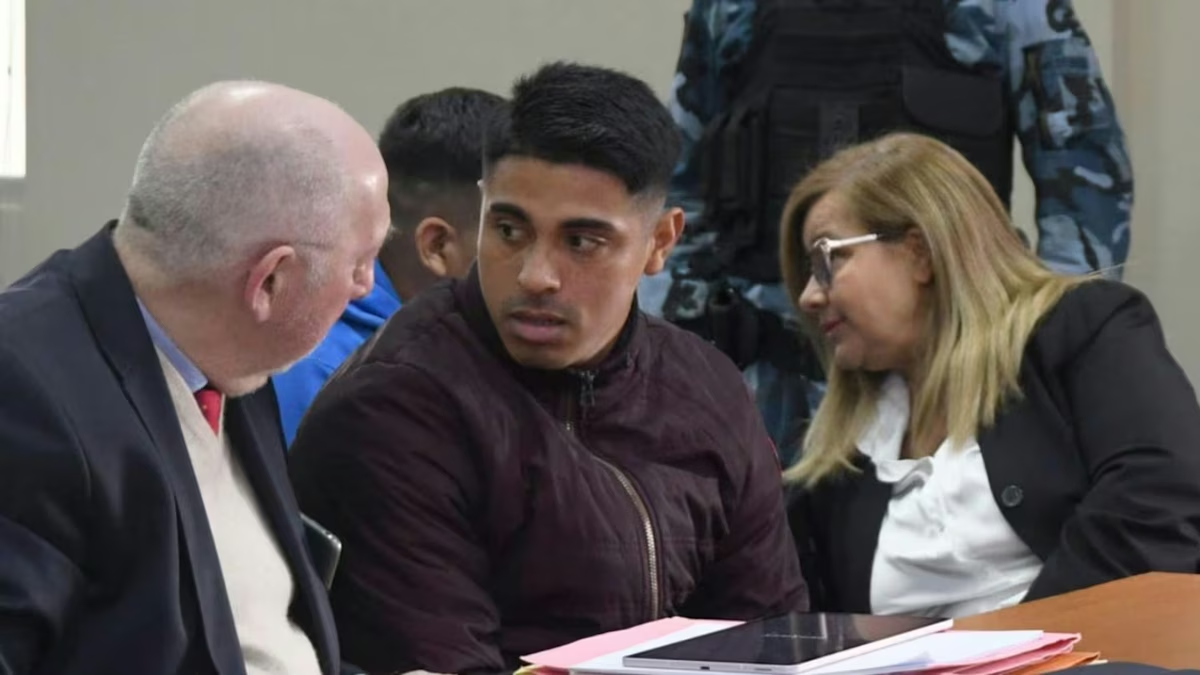(By Genaro Press, special for Télam) The Uruguayan murga Agarrate Catalina and the participation of Juan Carlos Baglietto who replaced León Gieco with a throat and ear condition, animated the “Concert” last night at the National Auditorium of the Kirchner Cultural Center (CCK). for peace: Tribute to Adolfo Pérez Esquivel”.
The tribute that put an end to a musical day at the CCK referring to human rights with the concert “Stabat Mater. Scenes of recent pain: Tribute to Mothers and Grandmothers of Plaza de Mayo” (see box) which also celebrated 40 years of democracy in the country.
In this context, the Minister of Culture of the Nation, Tristán Bauer, presented a recognition to the Nobel Peace Prize winner Adolfo Pérez Esquivel on the 43rd anniversary of having received that distinction.
“Exactly 43 years ago the Nobel Peace Prize was awarded to Adolfo Pérez Esquivel. It happened in difficult times, in an atrocious time, during the civil-military dictatorship. And in the darkest night, the luminous: the Mothers of Plaza de Mayo, Open Theater and you appeared with your light and example. The Ministry of Culture distinguishes you for your life, for your example and for your fight for peace in Argentina and in the world,” Bauer said on stage, along with the head of the Service, Peace and Justice Foundation.
The Nobel Prize, in turn, wanted to thank Agarrate Catalina for the presence and mentioned “Eduardo Galeano, Mario Benedetti, Perico Pérez Aguirre, with whom we have toured Latin America and the world.” He also highlighted the presence of Nora Cortiñas, Madres de Plaza de Mayo, the singer Piero and the leader Juan Grabois, and then dedicated himself to a brief speech about peace.
“It is not the absence of conflict – highlighted Pérez Esquivel, who currently also dedicates his time to the Children’s Village for Peace Project – but rather it is something that is built. I saw many places at war but in the hardest moments I always found the smile of a man and a woman with the hope that another world is possible. We, the people of the world, want peace.”
He also remembered Eva Perón and urged to protect education and public health, fight against denialism and against those who propose dollarizing the country’s economy. “We need a strong weight. “Do not vote for your executioners,” she said, and sparked a standing ovation from the entire National Auditorium.
The night had begun with the clarification of the absence of León Gieco, who sent a message that an announcer read to the public. “Unfortunately, due to a condition in my throat and ear after yesterday’s rehearsal and which I was recommended to take care of, it makes it impossible for me to participate in the tribute that Pérez Esquivel deserves,” explained the Santa Fe troubadour.
Then, Agarrate Catalina took the stage, whose 12 members (10 men and two women) made the entire audience sing and move in their seats. “What joy and pride to be celebrating 40 uninterrupted years of democracy. And this highly deserved award to Adolfo. An incredible celebration of his life and his commitment,” said Yamandú Cardozo, director of the murga that was founded in Montevideo in 2001 and has already released 13 albums.
Within the repertoire of a dozen songs, they dedicated “Soy” to the Mothers and Grandmothers of Plaza de Mayo, a song that was composed for one of the editions of “Teatro x la Identidad”. “I can say that my name is Yamandú because I know who I am,” said the singer and composer, and raised the room.
Next, they invited Juan Carlos Baglietto, who commented that it was “a luxury to be here for 40 years of democracy and celebrate the much-needed peace. Thank you Adolfo.” The murga and the singer from Rosario shared the stage to perform “Manifesto of the Half Truth” and Baglietto then offered a powerful version of “El émpano”, which he once again brought the audience to their feet.
Back with Agarrate Catalina on stage, the group and Baglietto performed an impeccable a cappella version of “Cinco Centuries Igual” by León Gieco. Finally, the Uruguayan murga crowned its performance with “Montevideo”, “Civilization”, “Violence” and “Aporophobia”, a title that refers to a neologism to refer to “rejection, aversion, fear and contempt towards the poor, towards the helpless who, at least in appearance, cannot give back anything good in return.”
With a beginning of zamba, which later transformed into murga, Agarrate Catalina began to say goodbye to the public. “We’re going to do it like we do on the street: we start on stage and then we all go outside,” Cardozo invited to end a concert that ended with pure murguero dancing in the hall of the National Auditorium.
Source: Ambito
I am an author and journalist who has worked in the entertainment industry for over a decade. I currently work as a news editor at a major news website, and my focus is on covering the latest trends in entertainment. I also write occasional pieces for other outlets, and have authored two books about the entertainment industry.




